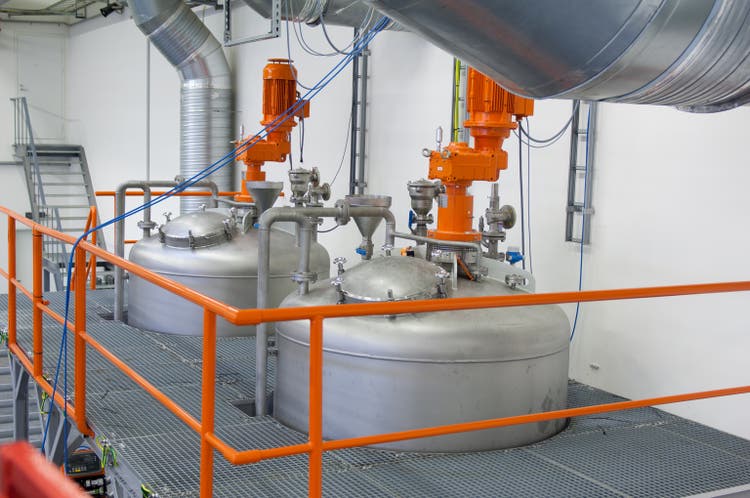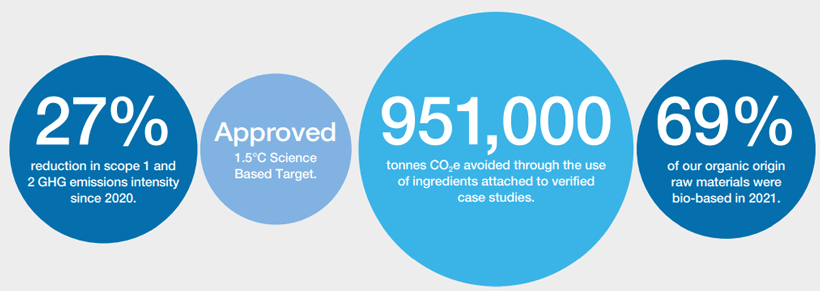IP Galanternik D.U./E+ via Getty Images
By Jim Madden, CFA; Tony Tursich, CFA; & Beth Williamson
ESG opportunities with robust returns on investment can be found in myriad industries, even among industries with discernable environmental and societal constraints. When approaching a high-risk industry from an ESG perspective, we take great care to ensure investments are not being made in companies with significant environmental, health, and safety risks or liabilities.
Consider the chemicals industry. Although chemicals are used to make virtually every manufactured product, they create negative impacts on human health and the environment. These negative impacts can be regarded as unpriced externalities that will ultimately affect shareholder capital. Furthermore, it is important to not be misled by the rankings of the largest chemical manufacturers by the ESG rating agencies. For example, at first glance, some household name chemical companies may seem like ESG leaders given their high third-party ratings, including AAA or A ratings from MSCI ESG.
Chemicals can negatively impact human health and the environment during various stages of their life cycles. Most chemicals use nonrenewable resources as raw material inputs (e.g., natural gas, coal and coke, minerals, fuel oil, and liquefied petroleum gas). These materials are typically hydrocarbons that, when combusted, can lead to the release of carbon dioxide (CO2), volatile organic compounds (VOCs), and nitrogen oxides (NOx) that contribute to the formation of tropospheric ozone or “smog.” The processing of raw materials can result in the release of hazardous pollutants into the environment. Additionally, hazardous waste is generated as a byproduct of manufacturing.
Of elevated concern however, are perfluoroalkyl and polyfluoroalkyl substances (PFASs). PFASs are a very large class of over 9000 persistent hazardous manufactured chemicals that includes PFOA, PFOS, and GenX chemicals. Since the 1940s, PFASs have been manufactured and used in a variety of industries in the United States and around the globe. PFASs are found in everyday items such as food packaging and nonstick, stain repellent, and waterproof products. PFASs also are widely used in industrial applications and for firefighting.
PFASs can enter the environment through production or waste streams and are so environmentally persistent that they have been termed “forever chemicals.” Exposure to several PFASs has been linked to a plethora of health effects in animal and human studies. There is toxicological evidence that some PFAS have adverse reproductive, developmental, and immunological effects in animals and humans.
It is important to note that only a handful of companies have produced the basic chemical building blocks for PFAS chemicals-but this short list includes companies with sterling third-party ESG bona fides. Evidence has been uncovered that although these companies knew about the potential human health risks since the 1960s, these firms have denied allegations and expanded production for decades. As recently as January 2021, spinoffs of one of these companies settled to share over $4 billion of PFAS-related liabilities.
This is just one example of why proprietary research-not third-party ratings-drive authentic and credible ESG portfolio construction. Of course, these ratings can be useful-either as a starting point or as a confirmation, but they cannot be the foundation of an investment decision. We reviewed one of these household name companies years ago. We were not willing to place it in our ESG strategies given our view of the company’s poor corporate governance, questionable business ethics, and significant environmental liabilities.
Instead, we seek to identify and invest in companies that recognize the value of biological raw material inputs as a human health and environmental risk mitigation tactic. Take, for example, the company Croda (OTCPK:COIHF) (OTCPK:COIHY). The majority of Croda’s raw materials are sustainably sourced bio-based materials including palm derivatives, corn, castor, rapeseed, coconut, and sunflower oils. Not only are Croda’s raw materials bio-based, but the company has also implemented some of the strongest supply chain management mechanisms, audits, and certifications to ensure long-term sourcing partnerships and positive environmental impact.
Croda intends for its bio-based raw inputs to reach 75% by 2030. This is three times that of the European Chemical Industry target of 25%. Moreover, Croda recognizes its ability to be climate positive. Bio-based materials sequester carbon as they grow. As such Croda’s sourcing of bio-based inputs enables the company to minimize its impact on the environment by designing lower-footprint products. Croda’s customers, which include some of the world’s largest personal care, home care and life sciences companies, also recognize the carbon benefits of Croda’s sustainable ingredients as a means to achieving their own net-zero goals.
Croda: Authentic ESG attributes, supported by action and innovation
In its “Sustainability Report 2021,” Croda notes the following:
Author Croda

Croda can charge a premium on bio-based products and is focused on displacing petrochemical competitors in formulations with a broad “ECO Range” product line in renewable surfactants. Surfactants are useful for creating emulsions and are used in a variety of consumer goods. Surfactants can be formed via petroleum-derived compounds or biomass. Given that the input does not impact performance but does reduce ecological and health risks, Croda is seeing a significant increase in demand for these products and is earning a double-digit return on capital. Additionally, with rising ethylene prices, Croda is less exposed to hydrocarbon price volatility, given the company’s reliance on bio-ethylene,* which can lead to better planning and operational excellence.
Our team’s due diligence identifies major differences in Croda’s ESG profile versus those that are simply rated highly by third parties. And, as ESG investors, we believe Croda’s approach gives has a higher probability of future success. Moreover, we believe our attention to these sorts of business fundamentals gives our approach authenticity, credibility and a higher probability of success as well.
Editor’s Note: The summary bullets for this article were chosen by Seeking Alpha editors.


Be the first to comment